As with all world religions, many good and, equally, many bad things are said about Islam. Yet get some sense of the controversy over Islam–and I’ve included a few of the more important ones in the list. But books that take a balanced approach are much more helpful, generally speaking.
Below are some of the best books to read if you seek a truer understanding of Islam and of Muslims. Of course, every author here takes a position of some kind. But each one–whether Muslim, secular or Christian–aims to engage in a constructive discussion about Islam and what being Muslim means. Though a number of the books listed are written by scholars, all are easy enough to read with college-level English .
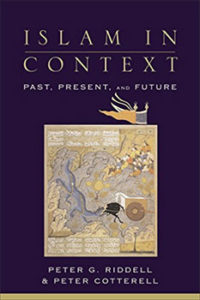 Islam in Context: Past, Present, and Future
Islam in Context: Past, Present, and Future
Peter G. Riddell and Peter Cotterell
This solidly researched book explores Islam’s history, basic structure and beliefs in order to help us understand Islam’s current moderate-extremist split. The authors move readers beyond stereotypes of Muhammad and reject the myth that relatively recent events are the only cause for the clash between Islam and the West. They ask the non-Muslim world to acknowledge its past mistakes, and they challenge Muslims to see how they must help us move beyond our current impasse.
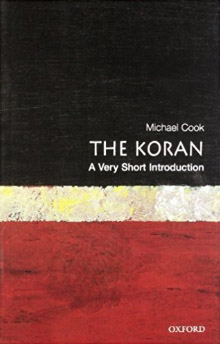 The Koran: A Very Short Introduction
The Koran: A Very Short Introduction
Michael Cook
The Koran has constituted a remarkably resilient core of identity and continuity for a religious tradition that is now in its fifteenth century. Cook provides a lucid and direct account of the significance of the Qur’an in both traditional Islam and the modern world. He discusses the processes by which the book took shape. He gives vivid accounts of its role in Muslim civilization, illustrating the diversity of interpretations championed by traditional and modern commentators. And he compares it to other scriptures and ancient classics.
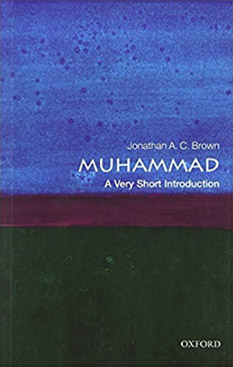 Muhammad: A Very Short Introduction
Muhammad: A Very Short Introduction
Jonathan A.C. Brown
Learning about Muhammad’s life and understanding his importance has always proven difficult, since our only source of knowledge comes from the biography of him written by his followers. But the reliability of that source has long been questioned by Western scholars. Brown provides a good introduction to the major aspects of Muhammad’s life and its importance, providing both Muslim and Western historical perspectives. He explains the prominent roles that Muhammad’s persona has played in the Muslim world throughout history, from the medieval to the modern period. He also sheds light on modern controversies such as the Satanic Verses, for which author Salman Rushdie was condemned for blasphemy, and the uproar over Danish cartoons of Muhammad, which triggered violent protests around the world.
 The Qur’an in Context: A Christian Exploration
The Qur’an in Context: A Christian Exploration
Mark Robert Anderson
Offering a gateway into the Qur’an’s original world and worldview, The Qur’an in Context is a reliable guide for those who want to explore Islam’s holy book. Some say the Qur’an says basically the same thing as the Bible, only in different words. Others say the opposite—that the Qur’an says very different things from the Bible, only using very similar words. With keen attention to the Qur’an’s character, reception and theology, Anderson cracks this puzzle, enabling Christians and others to understand this very challenging and controversial scripture. He examines the Qur’an’s theology and spirituality, as well as its portrayal of Jesus. Finally, in a manner sympathetically open to dialogue, he probes the Qur’an’s claim to be the Bible’s sequel.
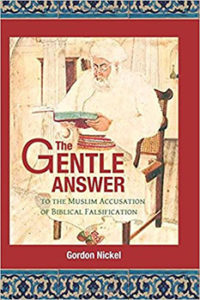 The Gentle Answer to the Muslim Accusation of Biblical Falsification
The Gentle Answer to the Muslim Accusation of Biblical Falsification
Gordon Nickel
Despite the Qur’an’s respectful references to the biblical scriptures, Muslim polemicists use some qur’anic verses to claim the Bible’s words have been falsified. Nickel offers a scholarly Christian response to that claim, showing Muslim accusations against the Bible to be without merit. He also shows that textual questions about the Qur’an are at least as challenging as those about the Bible. The Gentle Answer thus invites Muslims into an honest and open discussion of the meaning of the Muslim and Christian scriptures.
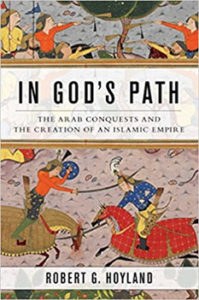 In God’s Path: The Arab conquests and the creation of an Islamic empire
In God’s Path: The Arab conquests and the creation of an Islamic empire
Robert G. Hoyland
In the 120 or so years after his death, Muhammad’s followers swept across the Middle East, North Africa and Spain. Most recent popular accounts of their conquest are based almost entirely on the early Muslim sources, written to demonstrate that God had chosen the Arabs to spread Islam throughout the world. In this groundbreaking work, Hoyland, a leading historian of the period, delivers a fresh account of the Arab conquest and establishment of an Islamic Empire. Hoyland does so by incorporating different approaches and different bodies of evidence than the early sources considered. Yet Hoyland has no interest in vilifying the early Muslims. Hence, he offers a balanced account of this transformative period in world history.
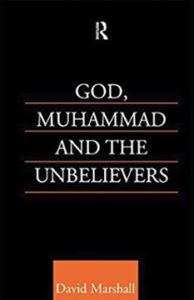 God, Muhammad and the Unbelievers
God, Muhammad and the Unbelievers
David Marshall
Marshall’s focus here is on what the Qur’an says about the relationship between Muslims and non-Muslims during Muhammad’s prophetic career. He presents a detailed and illuminating analysis of many important Qur’anic passages and themes, offering an original account of significant developments within the Qur’an as a whole. He pays special attention to the Meccan punishment narratives, which the Muslim community first heard when they and their prophet were powerless and persecuted. This raises questions about which models are appropriate for Muslim society today and how Christians and Muslims can dialogue effectively.
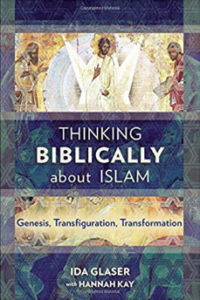 Thinking Biblically about Islam: Genesis, Transfiguration, Transformation
Thinking Biblically about Islam: Genesis, Transfiguration, Transformation
Ida Glaser and Hannah Kay
Guiding Christians to think biblically about Islam, Glaser and Kay point out two underlying frameworks necessary to think biblically about Islam. The first is the dynamic of religion since Adam and Eve, as seen in Genesis 4-11. This helps us understand Bible stories within the religious contexts in which they occurred. The second framework, at the heart of the book, is the idea that Islam inverts Christ’s exaltation above the prophets in the transfiguration narrative. The writers help us better understand the Bible, Islam and God’s heart for Muslims by examining the themes of the land, zeal, law and the cross in Luke 9-10 and the stories of Moses and Elijah.
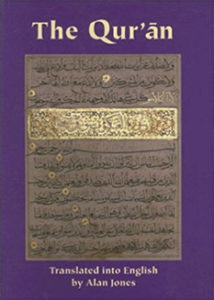 The Qur’an
The Qur’an
Alan Jones, translator
This fresh translation is the result of decades of study of the text, of the traditional Muslim authorities and of the works of other scholars. Jones grounds his translation in what the text meant to its original hearers. The traditional verse structure has been maintained, and where necessary verses have been further divided into sections to indicate where there are natural points for pause, and to emphasize the original oral nature of the text. This is the first translation of the Qur’an to adopt such an approach. Jones’s approach underlines the need for a sympathetic response to the oral and aural structures of the Arabic of the Qur’an. He includes a brief account of Muhammad’s life, as well as the origin and transmission of the qur’anic text.
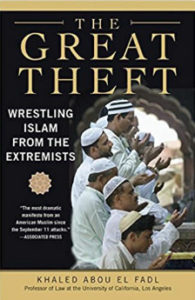 The Great Theft: Wrestling Islam from the Extremists
The Great Theft: Wrestling Islam from the Extremists
Khaled Abou El Fadl
Abou El Fadl’s The Great Theft is an impassioned defense of moderate Islam. A respected Muslim jurist, he claims to speak for the great majority of Muslims from whom he believes the extremists have stolen (or hijacked) Islam. While I fundamentally disagree with Abou El Fadl on this point, his book nevertheless offers a thoughtful and worthwhile presentation of moderate Muslims’ justifications for their position that their vision of Islam is the true one.
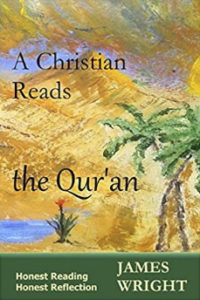 A Christian Reads the Qur’an: Honest Reading, Honest Reflection
A Christian Reads the Qur’an: Honest Reading, Honest Reflection
James Wright
Writing for a Muslim audience, Wright reflects on the text of the Qur’an from a Christian perspective, raising some excellent questions along the way. He does so in a very readable, conversational style. Wright has no interest in attacking the Qur’an. Instead, believing that Muslims and Christians often live in parallel universes, he aims to help build bridges of respect between the two groups by offering Muslims his thoughtful consideration of the Qur’an.
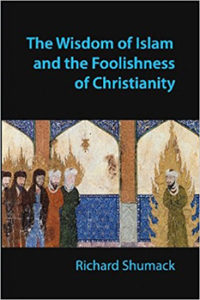 The Wisdom of Islam and the Foolishness of Christianity
The Wisdom of Islam and the Foolishness of Christianity
Richard Shumack
Richard Shumack offers a unique Christian response to nine common philosophical objections to Christianity made by Muslims. He compares the nature of God, faith and scriptural inspiration, the human problem and its solution, and the relationship between love and law and between politics and religion in the world’s two largest religions. And he attempts to be fair and even-handed in assessing the strengths and weaknesses of the Christian and Muslim worldviews.
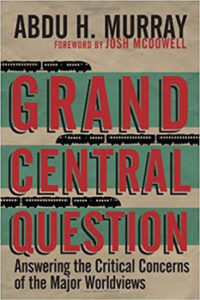 Grand Central Question: Answering the Critical Concerns of the Major Worldviews
Grand Central Question: Answering the Critical Concerns of the Major Worldviews
Abdu Murray
Abdu Murray views Islam, secular humanism and pantheism as representatives of the major worldviews of our day. All three answer the fundamental questions of human existence—Why am I here? What does it mean to be human? Why is there evil in the world and how do we deal with it?—but each one emphasizes a different question. As a lawyer and former Muslim, Murray brings compassion, understanding, and clarity to his analysis, comparing the answers of each worldview to the central message of Christianity.
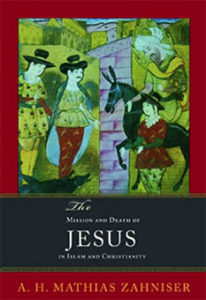 The Mission and Death of Jesus in Islam and Christianity
The Mission and Death of Jesus in Islam and Christianity
Mathias Zahniser
Zahniser discounts the common wisdom that Muslims and Christians should only dialogue on things we can agree on. He is convinced that the motivating force of our different traditions derives from not only what we hold in common, but also beliefs that keep us apart. Hence, he takes a careful and comprehensive look at different views of Jesus’ mission and death in the Qur’an and Bible. He considers relevant teachings in the hadith and broader Muslim tradition as well.
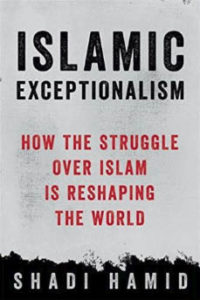 Islamic Exceptionalism: How the Struggle Over Islam Is Reshaping the World
Islamic Exceptionalism: How the Struggle Over Islam Is Reshaping the World
Shadi Hamid
With unprecedented access to Islamist activists and leaders across the region, Hamid offers a panoramic and ambitious interpretation of the region’s descent into violence. Hamid argues for a new understanding of how Islam and Islamism shape politics by examining different models of reckoning with the problem of religion and state, including the terrifying example of ISIS. Islamic Exceptionalism makes an important contribution to our understanding of Islam and its role in modern politics. We must understand Islam because it will continue to be a force that shapes not just the Middle East, but the West as well, in the decades to come.
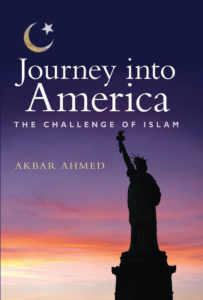 Journey into America: The Challenge of Islam
Journey into America: The Challenge of Islam
Akbar Ahmed
America’s nearly 7 million Muslims often experience tension in their relations with non-Muslims. Many Americans associate Islam with ISIS and worry about “homegrown terrorists.” Based on a full year of research that took him across the length and breadth of the land, renowned scholar Akbar Ahmed here gives his description of who America’s Muslims are and his view of how they’re fitting into American society. In a book equal parts anthropological study, travelogue, and listening tour, Ahmed humanizes America’s Muslims and their communities.



